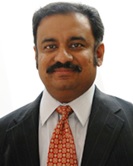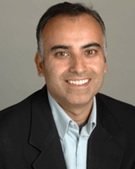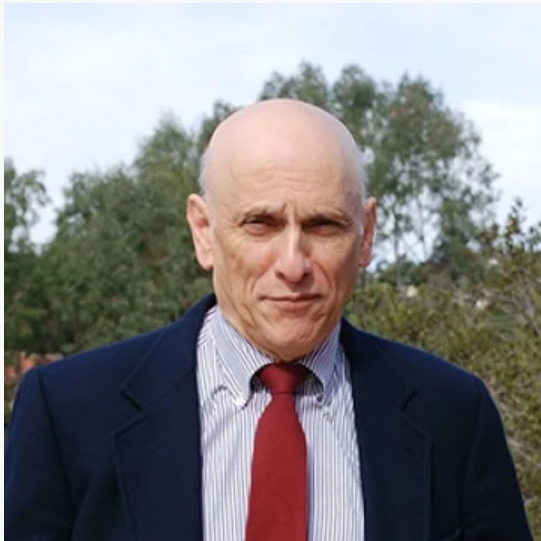UCLA PGPX Classroom Module Dec 16-20th : Digital Transformation, Operations Management & Marketing

This classroom module in UCLA PGPX focuses on further enhancing your learning by focusing on the most important aspects of Digital Transformation, Operation Management and Marketing. Prof. Uday Karmakar will help you to learn the Digital Transformation aspects by helping you appreciate the nuanced aspects of identifying an interesting idea and developing it further. Prof. Kumar Rajaram will then spend time in enhancing your execution skills by first helping you appreciate the intricacies of Operations Management and teaching the basic concepts and then helping apply to those to manage effective operations. Prof Sanjay Sood will focus on core marketing concepts for overall enhancement. The final outcome would be your growth as an global leader who understands that operational excellence and execution makes the real difference towards long term success.
Faculty

Prof. Kumar Rajaram
Professor
Kumar Rajaram is professor of decisions, operations and technology management and the Ho-Su Wu Chair in Management at the UCLA Anderson School of Management. Rajaram’s current research interests include improving operations in the health care industry, nonprofit sector and process manufacturing sector, including food processing, pharmaceuticals and the petrochemical industry. He has focused on developing analytical models of complicated systems with a strong emphasis on practical implementation.
Rajararm’s work has been published in leading research journals such as Operations Research, Management Science, Manufacturing and Service Operations Management, Marketing Science and Production and Operations Management. He has been awarded the Eric and E Juline Faculty Excellence in Research Award at UCLA Anderson.
Rajaram developed a new control paradigm called “Robust Process Control” to increase the productivity of large-scale industrial processes. By focusing on the design and control of these processes in operational environments, this technique has resulted in four-fold increases in productivity in several types of industrial processes. These methods have been implemented at several process companies worldwide. For this work, he has been recognized by the Institute for Operations Research and the Management Sciences (INFORMS) as a Franz Edelman Laureate for outstanding applications of operations research and management science techniques to practice. He has also developed techniques to better balance supply with demand for products with short life cycles and highly unpredictable demand. This work has been applied at several large fashion retailers in Europe and North America and has resulted in substantial improvements to profitability at these sites. He has also worked in developing analytical models to improve planning for HIV/AIDS screening, testing and care at the Veterans Administration. In addition, he has worked at improving patient flows at the Ronald Reagan UCLA Medical Center and has developed models to improve staff and operating room assignments for surgeries at this hospital.
Education:
- Ph.D. Operations Management, 1998, Wharton School, University of Pennsylvania
- M.A. Managerial Science and Applied Economics, 1997, Wharton School, University of Pennsylvania
- M.S. Industrial Engineering and Operations Research, 1993, University of Massachusetts at Amherst
- M.Sc. Mathematics, with Honors, 1991, Birla Institute of Technology and Science, Pilani, India
- B.E. Electrical and Electronics Engineering, with Honors, 1991, Birla Institute of Technology and Science, Pilani, India

Prof. Sanjay Sood
Professor
Sanjay Sood’s research and teaching expertise lies in the area of brand equity and consumer decision making. Using psychological principles, Sanjay examines how firms can best build, manage, and leverage strong brand names. This includes investigating what brand names mean to consumers, how to manage brand portfolios, how to use brand naming strategies to launch new products, and how to protect brand names from becoming diluted over time and across geographical boundaries. His research has been published in leading marketing and psychology journals including the Journal of Consumer Research, Journal of Marketing, and Cognitive Psychology.
Dr. Sood is an associate editor at the Journal of Marketing, and he is on the editorial review boards of the Journal of Consumer Research, Journal of Consumer Psychology and the Journal of Marketing Research.
Dr. Sood obtained his PhD in marketing from the Graduate School of Business, Stanford University. His MBA degree is from the Kellogg Graduate School of Management, Northwestern University, in marketing and strategy. He gained industry experience in product marketing at Centel Corporation, now a division of Sprint. Before joining Centel, he completed a BS degree in electrical engineering from the University of Illinois, Urbana-Champaign.
Dr. Sood has won several awards for excellence in teaching and student mentoring, including the Neidorf Decade Teaching Award at UCLA. Actively involved with industry, Sanjay has worked with several leading marketing companies, including Intel, Starbucks, Disney, Levi-Strauss, Microsoft, and Kaiser Permanente.
Education
- Ph.D. in marketing, Graduate School of Business, 1999, Stanford University
- M.B.A. in marketing and strategy, Kellogg Graduate School of Management, 1992, Northwestern University
- B.S. in electrical engineering with honors, 1987, University of Illinois

Prof. Uday Karmakar
Professor
Uday Karmarkar began his teaching career as an assistant professor at the University of Chicago’s Graduate School of Business. He later moved to the Simon School at University of Rochester, where he was Xerox Chair Professor of Operations Management and directed the Center for Manufacturing and Operations Management. At UCLA Anderson, he has been the Los Angeles Times Chair in Technology and Strategy since 1994 and UCLA Distinguished Professor in Decisions, Operations and Technology Management, an area group that he notes is arguably “one of the best in the world.”
His recent research has focused on information-intensive industries, and operations and technology strategy for manufacturing and service firms. As the impact of technology and globalization is causing dramatic changes in many sectors in the U.S. and other major economies, his recent research addresses changes in employment and wages which have shown greater movement in services and information since 2000. Despite the fact that more areas of business are being automated, outsourced, off-shored or transformed by self-service, Karmarkar expects continued demand for MBA skills in the U.S. job market, with the greatest demand for workers who are creative, technologically savvy, analytical problem solvers, and able to work well with colleagues and customers. “Many of these skills involve complex tacit knowledge, which cannot easily be codified, off-shored or automated.”
Karmarkar has undertaken over 50 consulting and research projects on corporate strategy, digital transformation, supply chain management, e-business, industrial marketing, organizational restructuring and technology management for a wide array of companies in the United States, Europe and Asia. Among them are the Aditya Birla Group (India), Becton Dickinson (US and Japan), American Cimflex, Deere and Company, Eastman Kodak, Ford, GM, LA CRA, LA MTA, WW Grainger, Hindustan Lever (India), IBM, Singapore IDA, Thomson Publishing (multiple companies), USG and Xerox Corp. He has been an advisor to or director of startup companies engaged in sectors such as eCRM, ERP, web design, content creation, online education and data analytics software.
Karmarkar has published more than 100 research papers, book chapters and articles and has co-edited six research volumes. He has been invited to present his work at some 100 academic institutions around the world. He was a founding editor of the Journal of Manufacturing and Operations Management, the Technology and Operations Review and Current Trends and Foundations; he has served as associate editor or advisory editor of several other journals. He was the founder and director of the global Business and Information Technologies Project (BIT), which studied the impact of new online information and communication technologies on business practices worldwide with a network of partners in 16 countries. He has been a visitor at Erasmus University (Rotterdam), SDA Bocconi (Milano, Italy), MISB (Mumbai, India), Twente University (Netherlands), Alba (Greece), Theseus Institute (Nice, France), Nijenrode (Netherlands), University of Berne (Switzerland), SNU (Korea) and Korea University.When Karmarkar is not conducting research on the U.S. economy, restructuring industry sectors, digital strategies or the design of consumer “experience,” he might be found on the squash court.
Education
- Ph.D. Management Science, 1975, Massachusetts Institute of Technology
- B.Tech. Chemical Engineering, 1968, Indian Institute of Technology, Bombay
Learning Objectives:
By the end of this module in UCLA PGPX, you will be able to:
- Understand various elements of Digital Transformation
- Understand the importance of good execution with operational excellence
- Understand and apply the basics of designing a good process
- Build an appreciation of what makes great organizations work well – the execution DNA
- Analyze a good operations management strategy
- Assess process design using established tools and techniques
Classroom Methods
The classroom module will use various exercises, case studies, team assignment and class discussion to bring alive the complexities in the subject areas. It is required that you go through all the required cases as well as pre-reads and prepare for the session before the class. It will be greatly beneficial for you and the other participants to go through the material provided so that the discussion can be rich, and help clarify details with the faculty members during the in-class session.
